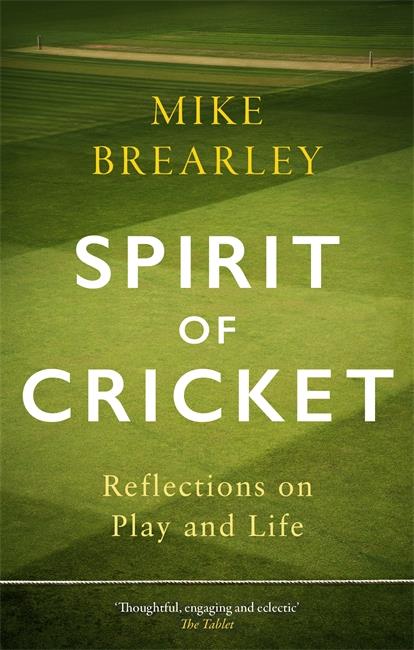Spirit of Cricket
Mike Brearley
If someone were to say 'it's not tennis', or 'not football' of shabby behaviour in any walk of life, he or she would not be understood. If they said 'it's not cricket', they probably would be (though less reliably than a century ago). Is there some special spirit of cricket?
The laws of cricket, like the laws of the land, aim at a sort of justice or balancing between different factions. The purpose behind cricket's laws, and behind changes in them, is often to calibrate the balance in the game between batsmen and bowlers, between attack and defence, between safety and risk. Cricketing lawmakers are interested in the overall appeal of the game to players and spectators alike.
In Spirit of Cricket, Mike Brearley alternates between issues and examples within the game - from 'Mankading' and the 'Sandpaper' affair to sledging, mental disintegration and racism - as well as broader issues such as the spirit and letter of the law. Brearley examines the issue of how far what purports to be justice (in law or in spirit) may or may not be the expression of the powerful within the activity or within society. He also contrasts cheating and corruption, and reflects on the nature of penalties in regard to each. He discusses the significance of the notion of the spirit of the game for umpires, groundsmen, administrators, media and spectators - and, of course, for players.
Intelligent and insightful, Spirit of Cricket points to qualities in cricket that enhance our development as people - including a sense of fair play, the embracing of striving both for our team and for ourselves and the important values of playfulness in life and professional sport.

